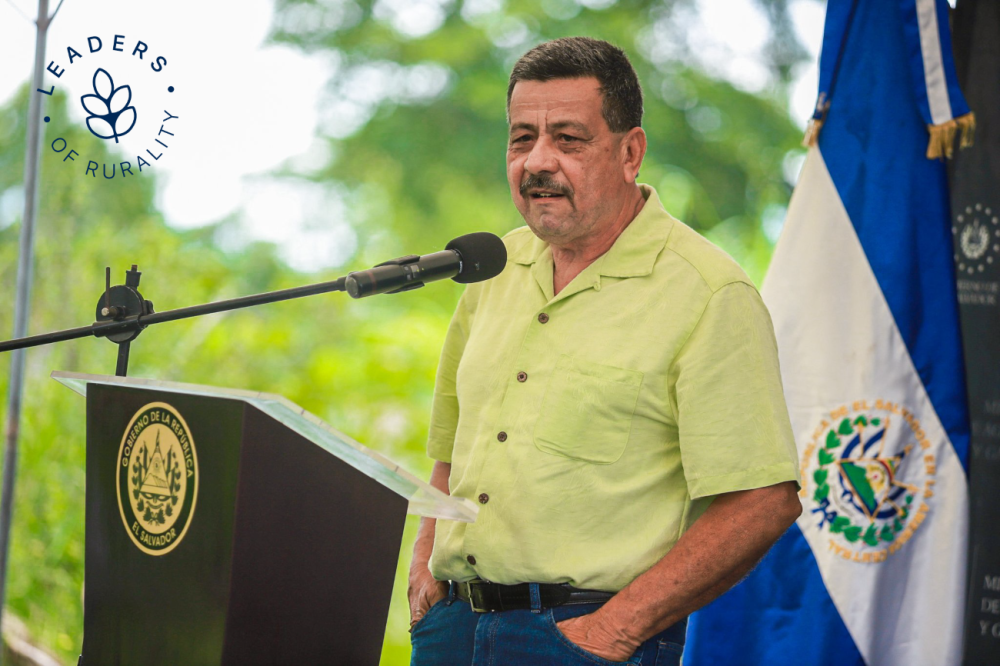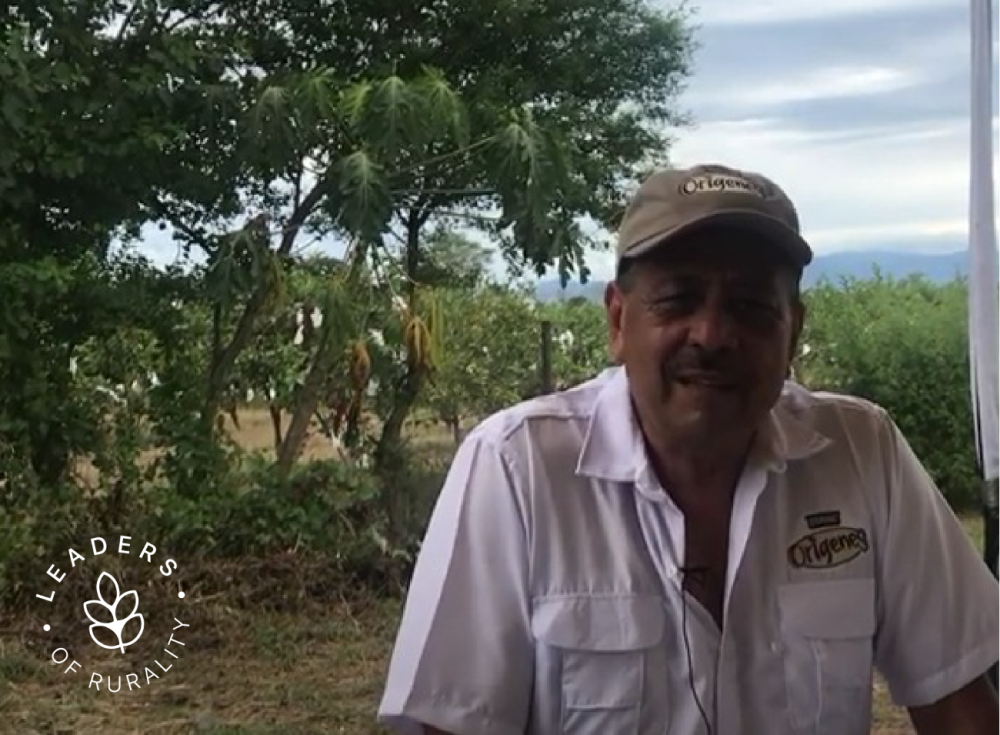Zelada is to receive the “Soul of Rurality” award, part of an initiative by the specialized agency for agriculture and rural development intended to shine the spotlight on men and women who leave their mark and make a difference in the rural areas of the Americas, a key element in the world’s food and nutrition security and environmental sustainability.

San José, March 19, 2024 (IICA). For his decades of work on behalf of the cooperative movement as a central tool for improving the quality of life of farmers in El Salvador, the Inter-American Institute for Cooperation on Agriculture (IICA) has recognized Salomón Zelada as a “Leader of Rurality in the Americas.”
Zelada is to receive the “Soul of Rurality” award, part of an initiative by the specialized agency for agriculture and rural development intended to shine the spotlight on men and women who leave their mark and make a difference in the rural areas of the Americas, a key element in the world’s food and nutrition security and environmental sustainability.
The son of a peasant family that worked a small coffee farm, Zelada’s life has been devoted to agriculture for as long as he can remember. He has received extensive training, which began when he graduated from high school and entered the National School of Agriculture (ENA).
The desire to learn took Zelada to various countries, and for 32 years he has been manager of the San Carlos Agricultural Cooperative, whose around 100 members produce a variety of foodstuffs for both domestic consumption and export.
Salomón’s work is also a point of reference for all agricultural cooperatives in El Salvador that seek ways to increase their members’ incomes. Zelada takes part in training activities, especially those targeted at the cooperatives’ youngest members.
“When I go to give talks, I don’t take any documents or written materials with me. When you learn things in the field, learn hands on, the experience and the knowledge acquired are never forgotten,” he says.
Salomón is proud of what has been achieved over the years on behalf of the farmers of the San Carlos Cooperative, including, most recently, the halting of the emigration of the youngest members of their families to the United States.
“Today our cooperative is profitable, and that benefits its members. No business in El Salvador provides the social benefits that we provide. We build houses for all our members and connect them to drinking water and electricity services at no charge. Life insurance is also provided. And at the end of each agricultural cycle, the financial surpluses, which are normally between 2500 and 3000 US dollars, are distributed among the members.”
IICA recognizes as “Rural Leaders of the Americas” individuals who play a unique dual role: as guarantors of food and nutrition security, and at the same time as guardians of the planet’s biodiversity through responsible production. The recognition also serves to highlight the possibilities of promoting positive examples for the rural areas of the region.

Diversification and profitability
After graduating from the ENA in 1974, Zelada worked for the Ministry of Agriculture and Livestock of El Salvador, supporting farmers in the production of different crops and, after the implementation of agrarian reform, in the organization of cooperatives. Grants enabled him to receive training in cooperative management in Israel, Italy and the United States. And with the help of IICA in El Salvador, for several years he specialized in the secrets of fruit production.
“In 1992,” he recalls, “when the San Carlos Cooperative hired me, its activities were limited. The farmers raised cattle and grew sugar cane, but based on my experience we began diversifying production. Currently we’re implementing seven projects and have always made money, which has given me a clearer vision of how to make a cooperative profitable. The most productive crop is papaya: we make more than USD 30,000 in profit per manzana [about 1.7 acres]. But we also grow limes, sugar cane, bananas, mangoes, Taiwanese guava, cassava and basic grains.”
The San Carlos Cooperative is located in the canton of San Rafael, part of the municipality of El Paisnal and the department of San Salvador. Since 2016, it has operated an agro-processing plant and its exports include 200 containers of plantains to the United States.
In addition, it supplies 2100 cases of plantains daily to a company that uses them to make a natural snack called Orígenes, which is sold throughout the country.
Salomón explains that he has learned a lot at the San Carlos Cooperative and is convinced that agricultural cooperatives in Latin America and the Caribbean can generate enough income to give the inhabitants of rural areas a decent life.
“I’ve been a farmer all my life and I know an operation can be profitable if you manage the activity professionally and have land, water and credit. We must look for crops that grow year-round, so the supply is constant. And I’ve also learned that you must have a buyer before even starting, not take risks if you don’t have one. In addition, you have to use good agricultural practices. And obtaining ecological certification is very useful, like the certification we have from a company in Germany for our production that uses organic agricultural inputs. For a cooperative to be successful, you have to think not only about current production, but rather about what may happen in five years,” he suggests.
Caring for the environment is a key issue for the San Carlos Cooperative. Salomón explains that no one is allowed to cut down a tree in the production area without authorization from the administration, which only grants permission when a tree has died. There is also a transition from the use of chemical to organic inputs. “We have a department of good agricultural practices and have ceased using any product that is harmful to the environment,” he points out.
For Salomón Zelada, the key thing about a successful agricultural cooperative is that it demonstrates that food production can provide a pathway for the realization of the personal and collective life projects of people living in rural communities.
He is proud that “thanks to the cooperative, we have enabled farmers to have a say as owners of the enterprise. We all work with a capitalist mentality for the good of all and, thanks to that, the agricultural cooperative has given dignity to the people, who today enjoy many benefits that would not be achievable any other way.”
More information:
Institutional Communication Division.
comunicacion.institucional@iica.int
Photo Gallery











